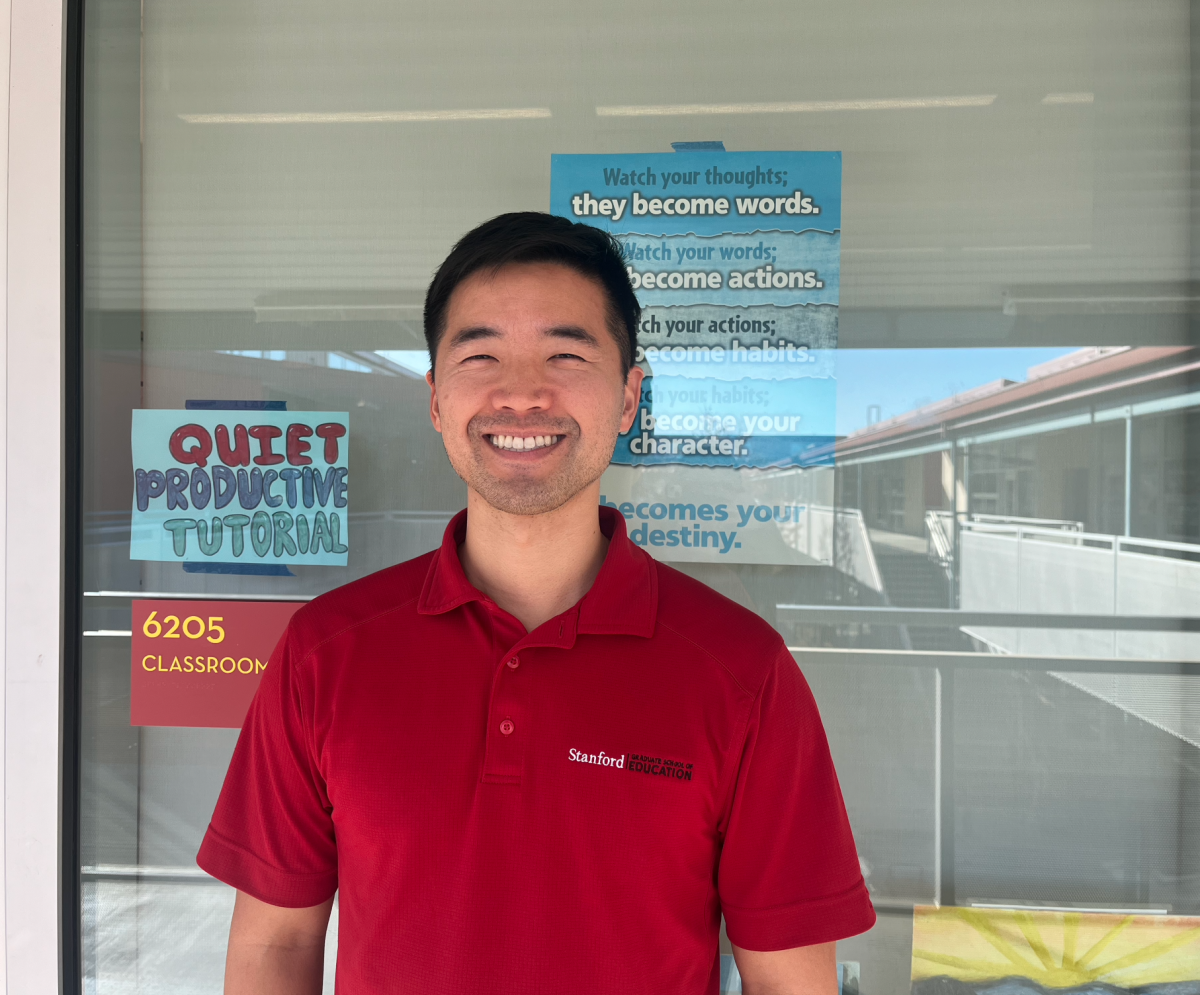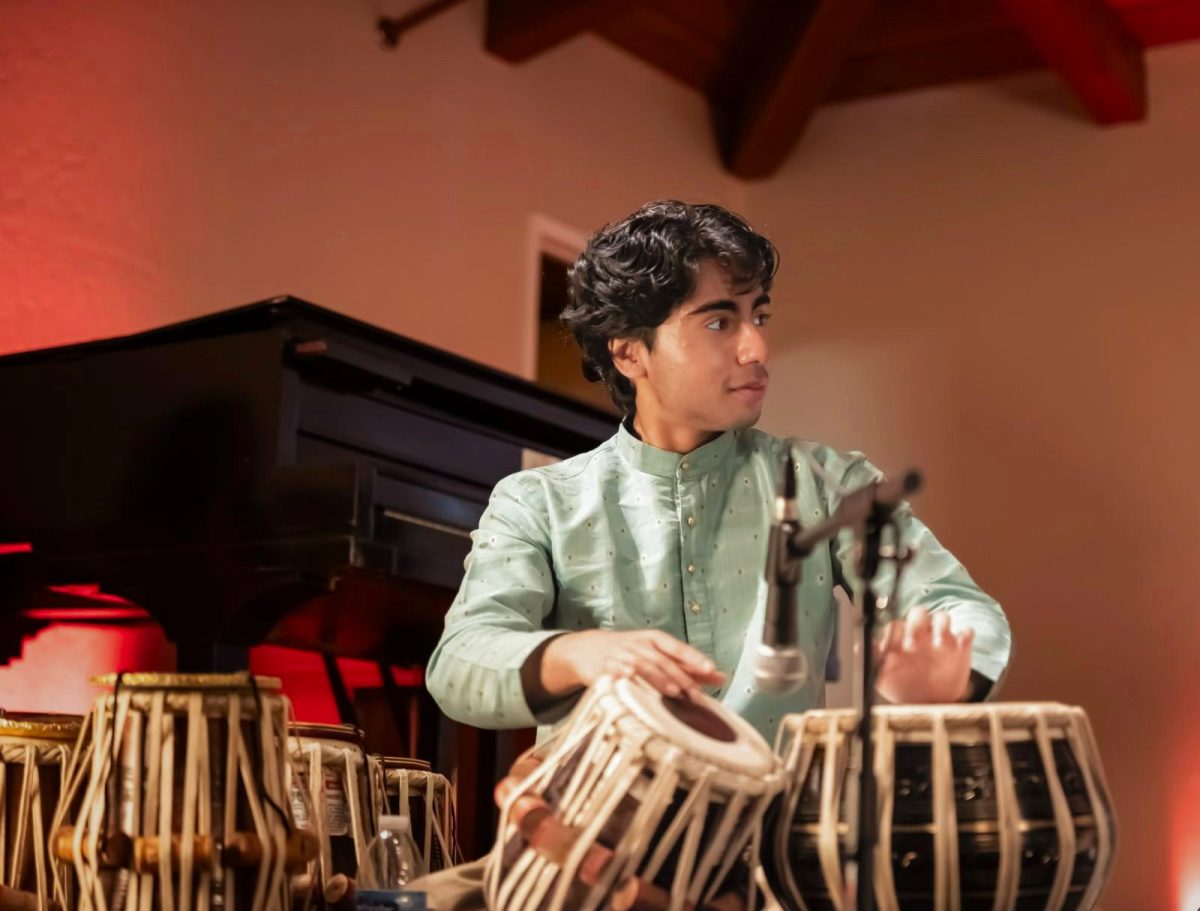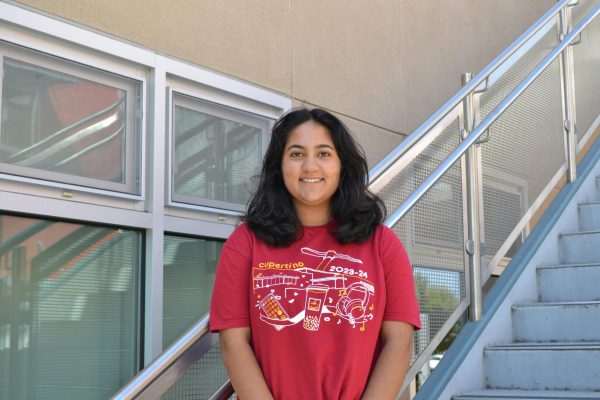In classroom 6205, US Government and Economics is not the only subject students study. Oliver Yeh, a Government and Economics teacher at Cupertino High School, has emphasized a classroom environment that encourages emotional growth, reflection and community among the seniors he teaches.
For the past nine years, Yeh has been educating his students on emotional intelligence skills alongside curriculum history lessons. Inspired by his own experience as a student in the Bay Area and the mentors that have guided his life, Yeh hopes to help his students reflect on their self-worth, privilege and individuality as they prepare for adulthood.
“I feel like a lot of me and my peers […] looked at school [as] kind of separate from feeling any sort of fulfillment or passion,” Yeh said. “They might find fulfillment and passion in their clubs or activities — things outside of school, but rarely in the classroom. And a lot of times classroom stuff felt like busy work or just like doing school.”
Through reflection activities and promoting authentic learning, Yeh hopes to break the cycle of academic stress and unfulfillment many students experience. With his desire to promote rumination, however, there is a need to balance social-emotional learning with curriculum expectations in the classroom.
Said Yeh, “I’ve taught gov for a while now, AP and regular, and I kind of know what the main takeaways are. I know the tests pretty well. So I just try to be very transparent. Like, what do you need to know and what do you not need to know?”
With U.S. Government being an introductory course, Yeh focuses on teaching students key concepts and fundamental ideas — and ensures they know them well.
“If I force you to memorize a thousand things, you really might only remember 50 of them. So let’s just focus on the 50. Make sure you really know them and develop a curiosity and interest hopefully. Then maybe over the course of your life, trust that you’ll learn things better because of that interest too,” Yeh said.
At the beginning of the year, Yeh has his students participate in activities to get to know each other, as well as develop their sense of self. He also makes sure to lead by example, being open about himself and his experiences as a Bay Area student.
Said Yeh, “I kind of hope that by sharing my experience, people will be more willing to reflect on their own experiences and also more willing to talk about theirs. [I try] to carve out time to focus on, like, reflection questions at the beginning of class, discussions where [students] talk face to face, just to build that as a part of the culture of the class.”
The strategies and lessons Yeh brings to the classroom are heavily influenced by his past teachers and fellow colleagues at Tino who inspire and motivate him daily.
“I took [lessons] from other teachers that I was inspired by, some of them on our campus, some of them off campus,” Yeh said. “I’ve been inspired by my former teachers, and my mom, and a lot of coaches and choir conductors that I had who showed me that there’s so much more than just academics.”
Yeh strongly believes that the positive qualities he brings as a teacher come from his own learning journey. As a teacher now, while promoting these same values and lessons to his students he hopes that this cycle continues on to his students’ peers and other generations.
While Yeh’s teaching style promotes empathy and reflection, it is not necessarily the style all students prefer. Ultimately, he hopes that kids will remember lessons and be able to apply what they spent their time in high school learning to the rest of their lives.
“I want to be authentic to myself, I want it to be different, but also a lot of the learning at the end of the day is going to be up to the students too, right? So no matter if it’s academic stuff or like emotional stuff, you’ll get out of it what you put into it,” Yeh said.
In the past, Yeh taught at schools in developing countries or low-income communities. His experiences have taught him to appreciate how privileged the Cupertino area is.
Said Yeh, “We all have to grow and improve like myself included, but we’ve really been born into a situation like we’re on third base where, like. we don’t realize we’re that close to a home run. […] I just hope that people can find worth in themselves beyond just metrics.”
Yeh hopes that all students can recognize their self-worth, regardless of academic standing. To relax and detox from the rigor of school, he recommends students take a break from technology and reflect on their sense of self and all the blessings of their lives.
“I think it really helps us feel more human connection. If we can develop that practice–I’m not saying don’t use tech at all but carve out time to appreciate those things,” Yeh said. “And so I’m not saying it’s easy. There’s plenty of days I’m like, it’s tough, right? Like work is work, but I would say carving out more time to be present in that helps.”
Every year, Yeh is motivated to continue this style of teaching because of the support of colleagues who apply similar methods on campus, as well as the important discussions he can have with students.
“These bigger questions of the transition from being a high school student to college, or what do you want to do in life, or what do you care about in life […] those are big questions that are always interesting to discuss no matter what age,” Yeh said.
He is also inspired to continue his teaching style because of what it means to him.
Said Yeh, “I’d be really bored if I ran stuff that I didn’t care about or I didn’t find interesting. So for me, it makes me excited to come into class to talk about these things that are a little more interesting or share what I’m going through in life and hear what students are going through.”











